Tennis is a sport that necessitates a unique blend of physical ability and mental toughness. From the first serve to the final point, players must maintain focus, remain calm under pressure, and make strategic shot selections. Even the best tennis players in the world, however, experience periods of doubt, irritation, and distraction on the court.
Whether it's questioning why they're losing to an opponent they should beat or feel tired during a long match, every tennis player has thought specific things on the court. Let's examine the top ten ideas that every tennis player has had while playing, as well as some advice for suppressing them and maintaining concentration.
Understanding these typical beliefs will help you maintain mental toughness and advance your tennis game whether you're a seasoned pro or a novice. So, let's dive in and explore the top ten things every tennis player has thought on the court!
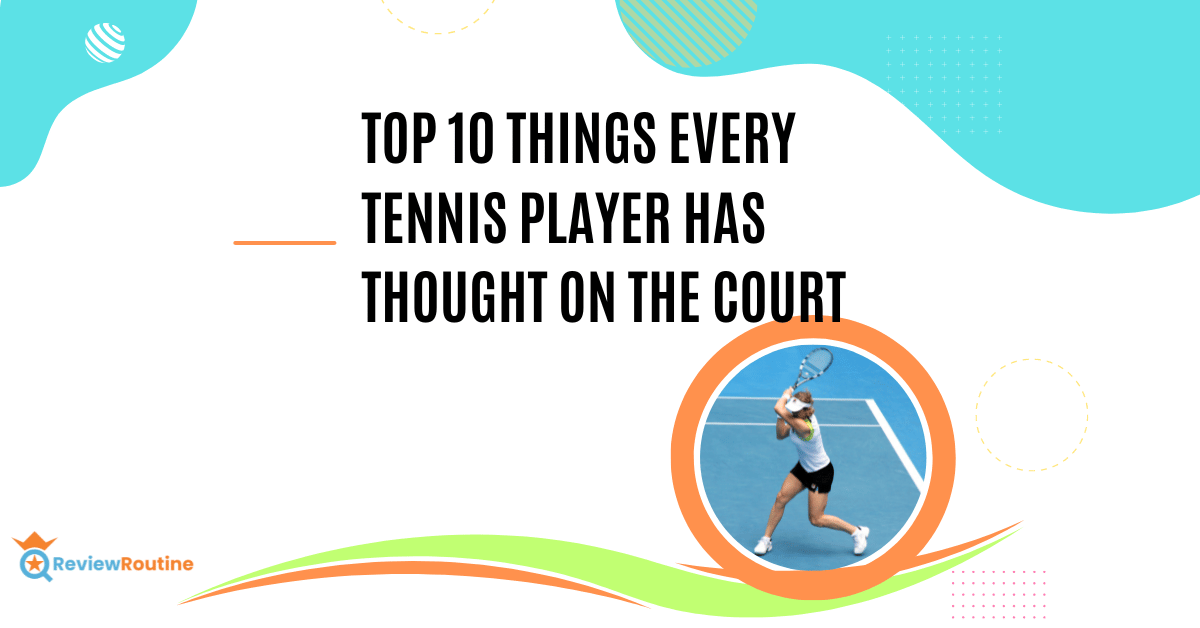
1. "How am I losing to this player?!"
It's no secret that playing tennis requires a certain level of competitiveness. When facing an opponent that you believe you should beat, it can be frustrating to find yourself on the losing end of the match.
However, it's important to control your emotions and refrain from letting your annoyance overwhelm you. Instead, try to focus on your game plan and make adjustments if necessary. Don't let negative thoughts consume you, as this can affect your performance on the court.
Remember that your opponent could have some tricks up their sleeve, so be prepared for anything. Stay focused, stay positive, and most importantly, stay in control.

2. "I got this, I can win this match."
When a player is in the zone and feels like they can't miss, there's a certain feeling of invincibility that can take over. These moments of confidence are crucial for players to perform at their best and can often lead to winning matches.
In fact, a positive mindset can be just as important as physical ability in tennis. When you're feeling confident, you're more likely to take risks and make bold moves on the court. This can put your opponent on their back foot and give you the upper hand in the match.
Of course, confidence alone isn't enough to win a match, but it can certainly help you perform at your best.

3. "My footwork is terrible!"
Footwork is a crucial part of tennis, and every player knows that good footwork can make all the difference on the court. When a player finds themselves out of position, they often criticize their footwork, and rightfully so. In tennis, being in the right position to hit the ball can mean the difference between hitting a winner and missing the shot completely.
To improve your footwork, it's important to practice regularly and focus on your movement around the court. Pay attention to your footwork during training sessions and make sure you're always in the right position to hit the ball.
Over time, with practice and focus, your footwork will improve, and you'll be more confident and successful on the court. Remember, tennis is a game of small margins, and good footwork can give you the edge you need to come out on top.
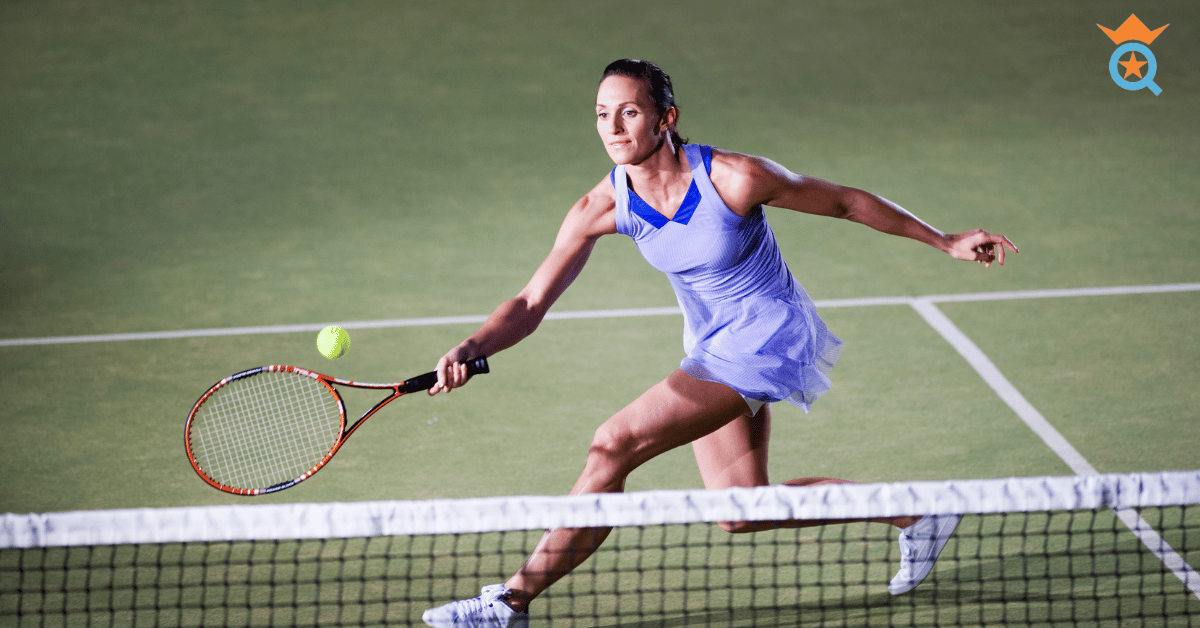
4. "I need to hit a good serve."
Serving in a tennis match can be one of the most stressful aspects of the game. The serve is a crucial shot in tennis, and a good serve can give you a significant advantage over your opponent. When players feel under pressure, they often think about their serve, and rightfully so. Serving well can help players win important points, hold their serve, and ultimately win matches.
It's important to focus on technique and practice your serve regularly to improve your accuracy and power. Take a deep breath, relax your muscles, and visualize the serve going exactly where you want it to.
Remember, a good serve is not just about power; it's also about accuracy and placement. Focus on hitting your spots and making it difficult for your opponent to return the ball. If you can master your serve, you'll have a significant advantage on the court and be well on your way to becoming a successful tennis player.

5. "I can't believe I missed that shot!"
Unforced errors can be one of the most frustrating things in tennis. They're those moments when you make a mistake that you know you shouldn't have. Perhaps you missed an easy shot, or maybe you didn't get in position quickly enough to hit the ball properly.
Dwelling on a mistake can affect your mental game and make it difficult to move on. Instead, take a deep breath, shake off the frustration, and focus on the next point. Remember, tennis is a game of ups and downs, and everyone makes mistakes.
Don't let a single mistake define your game, and don't get too down on yourself when you make one. Learn from the mistake, make adjustments, and move forward. In the end, it's the player who can stay mentally focused and composed and who will come out on top.

6. "Why am I hitting their forehand?!"
In tennis, shot selection is critical, and making poor choices can cost you points and, ultimately, the match. It's not uncommon for players to make questionable shot choices during a match, such as hitting their opponent's stronger side or going for a risky shot when it's unnecessary. When this happens, players can find themselves losing points and getting frustrated.
Focus on your opponent's weaknesses and exploit them. If your opponent has a strong forehand, try to hit their backhand instead. Or, if your opponent is struggling to get to the net, play more drop shots to draw them in.
Of course, this isn't always easy, and it takes practice and experience to make the right shot choices consistently.
But by staying focused and sticking to your game plan, you can make better shot choices and increase your chances of success on the court.
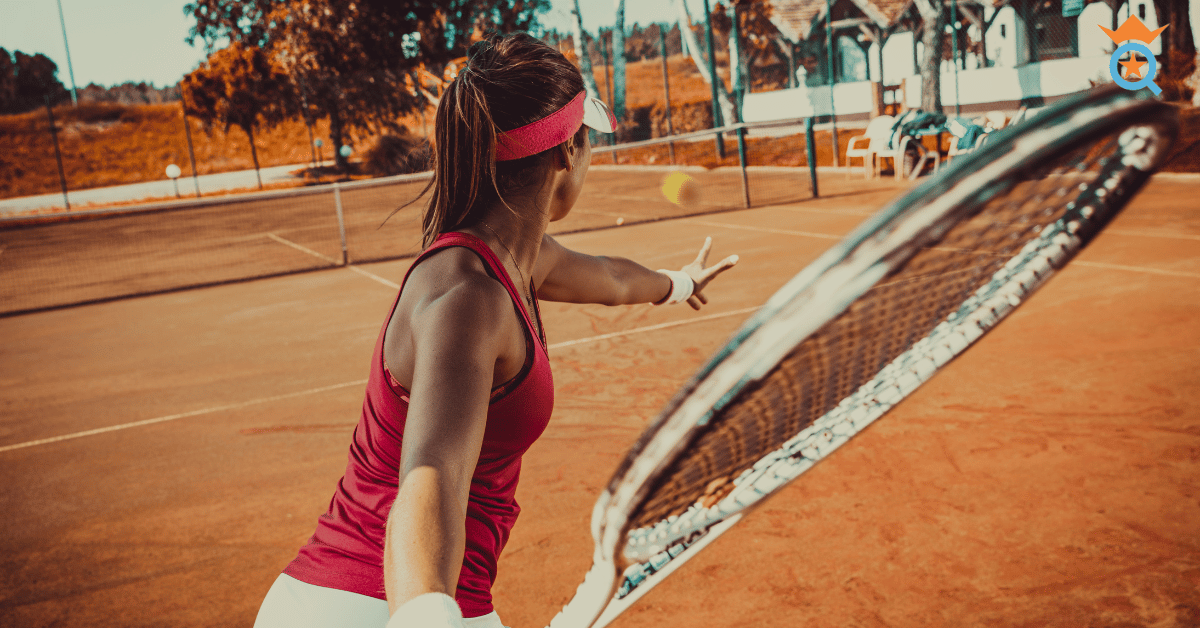
7. "I need to be more aggressive."
In tennis, aggression can be a double-edged sword. On the one hand, it's essential to take control of the match and assert yourself on the court. On the other hand, too much aggression can lead to unforced errors and missed opportunities. To find the right balance, players need to be strategic and measured in their aggression.
They need to know when to attack and when to play it safe. However, it's crucial not to let aggression affect your shot selection. It's easy to get carried away and go for risky shots that you wouldn't normally attempt. This can lead to mistakes and lost points.
So, while it's essential to be aggressive in tennis, it's equally important to stay focused, maintain your game plan, and play to your strengths. With practice and experience, you can find the right balance of aggression and control and become a successful and well-rounded tennis player.
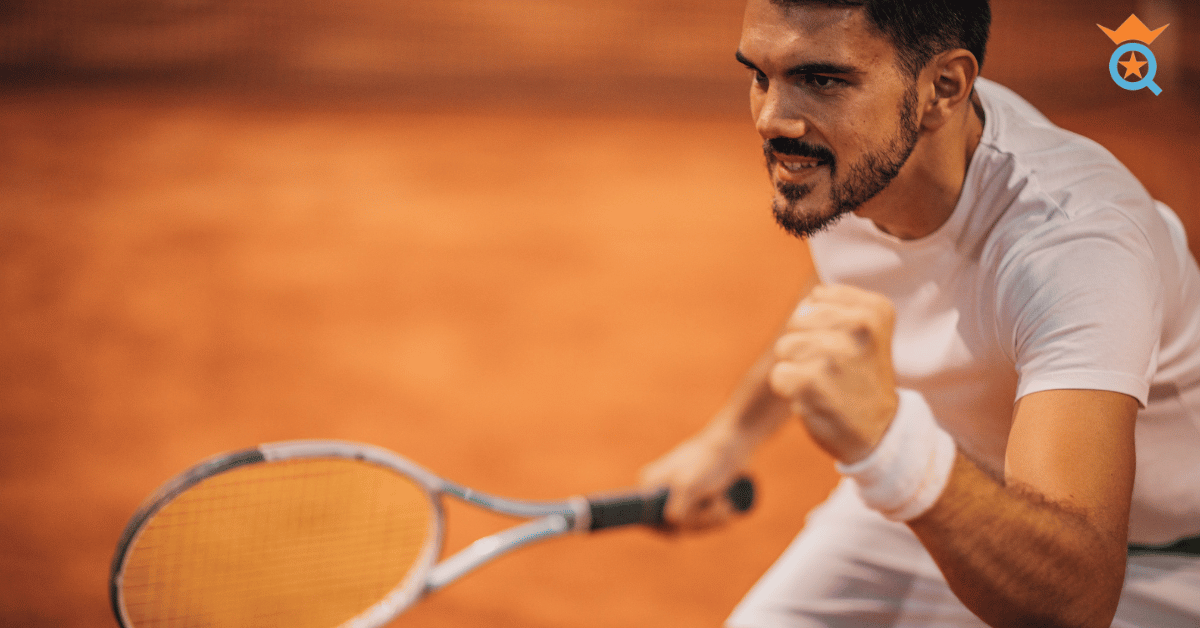
8. "I need to stay calm."
Tennis can be a stressful and emotional sport, and it's not uncommon for players to feel anxious or frustrated during a match. Staying calm can help players make better decisions and hit better shots. Take a deep breath and remind yourself to be calm when you're feeling anxious or overwhelmed.
Focus on your breathing, and visualize yourself hitting tennis balls exactly where you want them to go. Staying calm also means not getting too high or too low during a match. Celebrating a great shot is one thing, but getting overly emotional can lead to a loss of focus and mistakes.
Similarly, getting too down on yourself after a missed shot can affect your mental game and make it difficult to bounce back. Remember, tennis is a game of ups and downs, and staying calm during tough times can help you come out on top. With practice and experience, you can develop the mental toughness needed to stay calm and focused during important points.
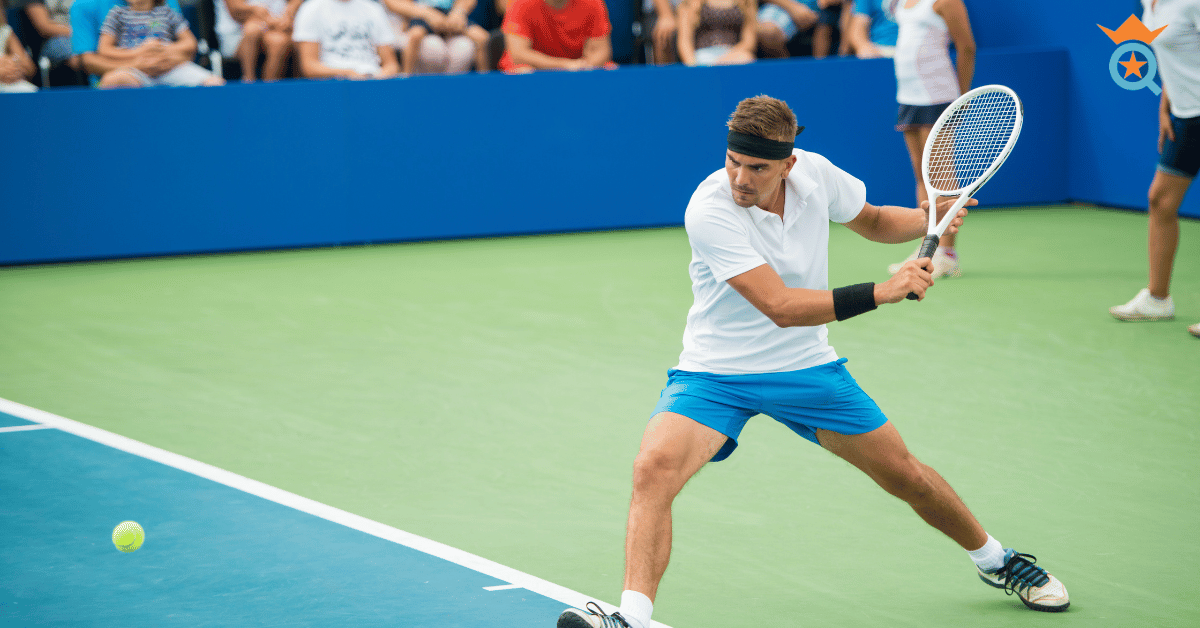
9. "I'm so tired."
Tennis is a physically demanding sport, and it's not uncommon for players to feel tired during long matches. Fatigue can affect your focus, reaction time, and shot selection, which can ultimately impact your performance on the court. It is critical to take care of your body and stay hydrated to avoid tiredness.
To stay hydrated and energized, drink lots of water before, during, and after your matches. Also, take breaks when necessary, and don't be afraid to rest when you need it.
If you're feeling particularly tired during a match, try to conserve your energy by playing smarter, not harder. This means hitting shots that require less effort, like drop shots or slices, instead of always going for the big winners.
Finally, make sure you're getting enough rest and recovery time between matches. Adequate sleep and proper nutrition are essential for maintaining your energy levels and avoiding exhaustion.
By taking care of your body and staying hydrated, you can stay energized and focused on the court, even during the longest and most grueling matches.
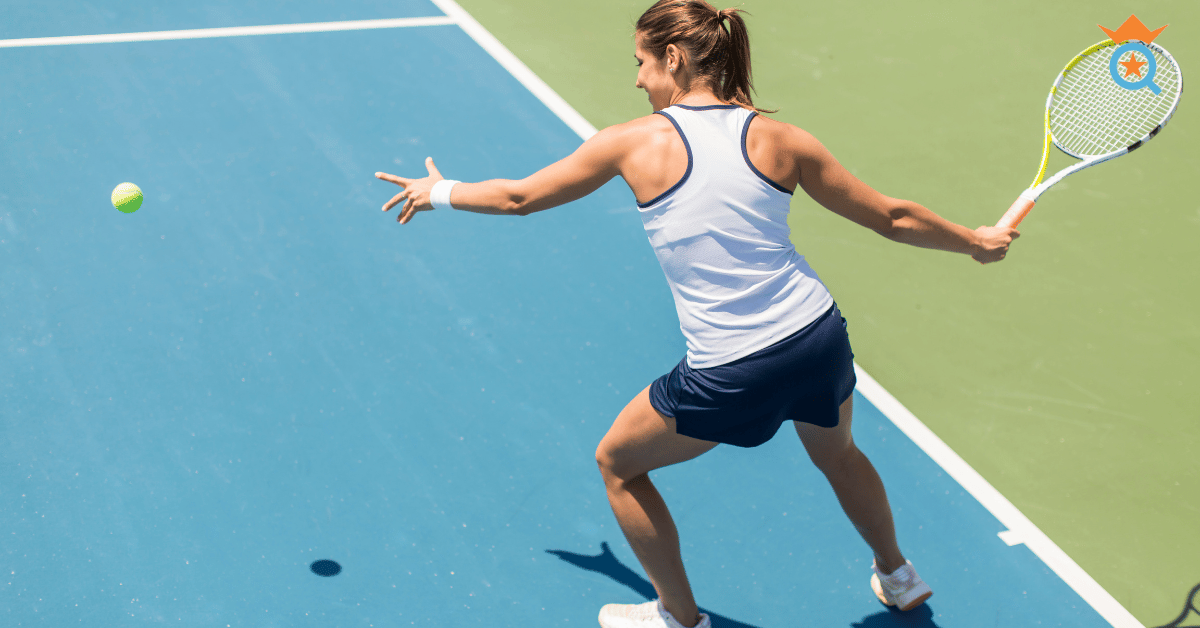
10. "I need to focus on my game."
Tennis can be a highly distracting sport, with a lot of external factors that can affect a player's focus and concentration. For example, the crowd's noise or your opponent's behavior can be highly distracting.
However, it's crucial to stay focused on your game and not let these external factors affect your performance.
To do this, it's essential to have a clear game plan and stick to it, regardless of what's happening around you. Try to focus on your own performance and not worry too much about what your opponent is doing. Pay attention to your own shots, and make sure you're hitting them as well as you can.
If you do find yourself getting distracted, take a deep breath, and try to refocus. Block out the noise, and visualize yourself executing the shots you need to win the match. By staying focused on your game, you can take control of the match and play tennis at your best, even in the most challenging and distracting situations.

Takeaways
Tennis is a sport that requires not only physical ability but also mental toughness and strategic thinking. Every tennis player experiences moments of doubt, frustration, and distraction on the court, but by understanding these common thoughts, players can learn to overcome them and stay focused on their game.
From questioning why they're losing to an opponent they should beat to feeling tired during a long match, these thoughts can affect a player's mental game and ultimately impact their performance. However, by staying calm, staying focused, and sticking to a game plan, players can overcome these thoughts and take control of the match.
With practice and experience, players can develop the mental toughness needed to succeed in the challenging and exciting world of tennis. So, the next time you're on the court, remember these common thoughts and use them to fuel your focus and determination to win. With the right mindset and approach, anything is possible on the tennis court.
Popularity of the Game
FAQs
How do you play good tennis?
To play good tennis, focus on early preparation, exaggerated follow-through, hit-and-recover, keeping your head still, getting your back leg behind the ball, and pulling back on your serve speed.
Who is the men's tennis champion?
Novak Djokovic is considered one of the greatest tennis players of all time. He has won multiple Grand Slam titles and is the reigning champion of all four majors.
Who are the most loved tennis players?
There are many beloved tennis players, including Novak Djokovic, Roger Federer, Rafael Nadal, Serena Williams, and Naomi Osaka.
What equipment do I need to play tennis?
To play tennis, you will need a racket, tennis balls, proper tennis shoes, and appropriate clothing.
How do I improve my tennis skills?
To improve your tennis skills, practice regularly, work on your footwork and technique, play against better opponents, and get coaching and instruction.
What is a Grand Slam in tennis?
A Grand Slam in tennis is winning all four major tournaments in a calendar year: the Australian Open, the French Open, Wimbledon, and the US Open. It is considered the ultimate achievement in the sport.
What is the difference between singles and doubles in tennis?
Singles is a one-on-one match, while doubles is a two-on-two match. In doubles, players must communicate effectively and coordinate their movements to cover the court effectively.
Why do tennis fans love the sport?
Tennis fans love tennis for many reasons. It's a game of skill, strategy, and athleticism, and it requires a unique combination of physical and mental toughness. The fast-paced nature of the game, with quick rallies and powerful shots, keeps fans on the edge of their seats.








